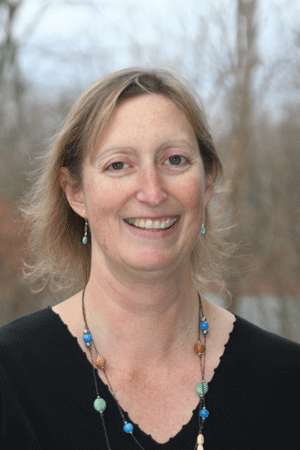Chancellor Michael F. Collins named Mary Munson, PhD, the recipient of the 2022 Chancellor’s Award for Advancing Institutional Excellence in Diversity and Inclusion at the 34th annual Martin Luther King Jr. tribute at UMass Chan Medical School on Jan. 24.

Dr. Munson, professor of biochemistry & molecular biotechnology and vice chair of diversity for the department, has worked nationally to promote the work of researchers from diverse backgrounds through her leadership in the Women in Cell Biology Committee at the American Society of Cell Biology and as co-investigator of the organization’s MOSAIC program.
At UMass Chan, Munson co-founded a local chapter of the Association for Women in Science and the interdepartmental Faculty Fostering Inclusive Excellence Community, serves as advisor for the student- led SACNAS chapter and has taken on the lead faculty role for the UMass Chan Voices in Science seminar series.
“Your commitment that puts diversity and inclusion front and center in all that you do is laudable, impressive and impactful,” Chancellor Collins said to Munson during the online event.
“Your colleagues admire your commitment to making a difference, acknowledging your boundless energy, vision and persistence that have helped to heighten awareness and advance a culture of inclusion for continued key progress in diversifying our institution.”
Collins gave a brief background of the award noting, “this award is bestowed annually upon an individual or group exemplifying the Medical School’s diversity, equity and inclusion values, which include building an inclusive culture, increasing access and equity, improving cultural competence, and advancing health equity.”
Keynote speaker Noel Manyindo, MD, chair of community health and social medicine at CUNY School of Medicine and former assistant commissioner of the New York City Department of Health and Mental Hygiene, presented on the theme of the event: advancing health equity and social justice through community health.
Through a historical breakdown of the racialized policies in the context of New York City, Dr. Manyindo shared how policies like redlining have led to densely populated neighborhoods where the lack of access to resources such as green spaces and firehouses have had direct correlations to health outcomes like asthma, diabetes, drug use and tuberculosis, and social outcomes such as incarceration, lack of educational attainment and infant death for marginalized populations.
Correlating those policies to today’s COVID-19 pandemic in which Black and Latinx communities have suffered the most deaths and have had the lowest vaccination rates, Manyindo noted that such disparities “sets things up to where we know people are going to fall behind. These are the things that make our work more difficult.”
Manyindo encouraged attendees to “look at the public health framework as we continue to respond to health inequity.”
He called for health care providers to “look at what is upstream vs. downstream.”
“A lot of the work we do in health care is very much downstream, focused on mortality, disease and injury risk behaviors. But what I am pushing for us here today is for us to be ‘up-streamists,’ to look further upstream, look at living conditions, the social environment, the physical environment. A lot of this will involve community capacity building, community organizing, social engagement, working with elected officials, professional associations and others,” he said.
Manyindo further called for the medical community to “lean into community power and wisdom. Our communities understand the issues, they’ve lived them and bringing them in really, in a way, shifts power that allows them to inform us.”
Manyindo’s words mirrored UMass Chan’s commitment to action as the Martin Luther King Semester of Service Student Award recipients were highlighted at the event.
Marlina Duncan, EdD, vice chancellor for diversity and inclusion noted, “Dr. King was not a superhuman. He was a man who put his gifts to work for the good of humanity. If he were alive today, he would continue to remind us that we all have gifts to share and a role to play in creating a more equitable and just society.”
Watch the full event at: 34th Annual UMass Chan MLK tribute
Related stories from UMass Chan Medical School:
Martin Luther King Jr. Semester of Service Student Awards address local health care needs
UMass Chan researcher co-directs project to enhance diversity in biomedical sciences workforce